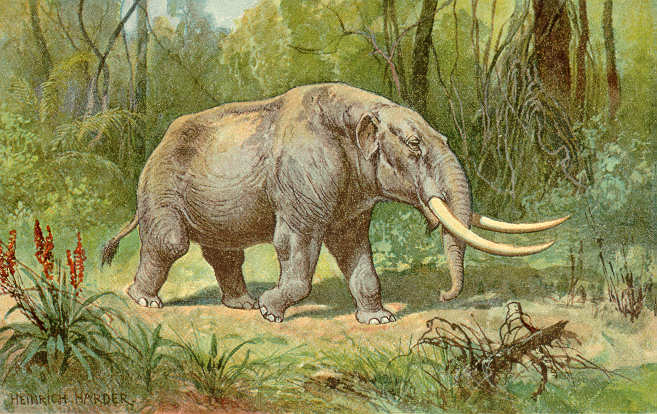Unless you’re an etymologist, I doubt you spend your days thinking about the history and evolution of language.
With bills to pay, errands to run, and work to get done we don’t all have the time to consider how and why our language has evolved over the centuries.
However, some words are worth taking the time to investigate. You’d be surprised at which ordinary, every day words actually have a naughty history.
They may seem innocent enough but these 9 words each have a risqué origin that might leave you blushing.
1. Partridge

Image Credit: Unsplash
You might be familiar with a partridge in a pear tree or even the Partridge Family, but did you know the word partridge comes from the Greek word perdesthai, meaning “to break wind”?
This references the whirring sound its wings make when it takes to the skies.
Think about that the next time you’re singing 12 Days of Christmas.
2. Gymnasium

Image Credit: Unsplash
When you read the word gymnasium you might recall memories from your younger years of dodging balls, enduring the Presidential Fitness Test, or enjoying a pep rally.
What probably doesn’t come to mind is… nudity.
Gymnasium comes from the Greek gumnazein, which means to exercise or play sports in the nude.
According to National Geographic, we’re not sure exactly why the Greeks were so keen on letting it all hang out, but it probably had to do with the Mediterranean climate and an abundance of body confidence.
3. Porcelain

Image Credit: Pexels
What could be naughty about porcelain? It’s so delicate and dignified.
Porcelain in and of itself is not a naughty word, as it translates simply to “cowrie shell.” Cowrie shells (remember “puka” shell necklaces?) are small, delicate and pretty.
However, the shell’s name in Italian is from porcella meaning “young sow,” or “young pig.” It is thought the shells were named for their resemblance to a cow/pig’s outer genitals.
Not so dignified now, huh?
4. Mastodon

Image Credit: Snappy Goat
Mastodons are the ancestor of our modern day elephant. These large beasts roamed North and Central America during the late Miocene period up to their extinction 10,000-11,000 years ago.
In Greek, masto translates to “breast” and odon translates to “tooth,” so mastodon really means “breast-tooth.”
It was Georges Cuvier, a 19th century French naturalist who coined the name in 1817, after discovering nipple-like projections on fossils of the mammal’s molars.
5. Punk

Image Credit: Unsplash
When you read the word punk, you might imagine a band of rock and roll music artists or a group of their leather-clad fans thrashing in a mosh pit.
Though it describes a particular genre of music and style, the word punk originally meant something was “worthless” or a “worthless person” of a “criminal” background.
It was also used to describe female prostitutes, as seen in Shakespeare’s Alls Well that Ends Well.
6. Musk

Image Credit: Pixabay
According to the Online Etymology Dictionary, musk comes from the Sanskrit word muṣka, which translates to “testicle.”
You’ve probably heard of “man musk,” in reference to a particular smell associated with the male of the species (whether it’s a good smell or not is up to you). But did you know male musk deer actually secrete musk in the form of a reddish-brown substance? (gag!)
It’s produced in a gland that was originally thought to look like a scrotum, although it is not directly tied to reproduction.
7. Forlorn

Image Credit: Pexels
We all experience lows in our life, but to be forlorn is to be more than just sad.
According to Dictionary.com, forlorn means to feel desolate, unhappy, lonely, or despairing.
Forlorn comes from Old English loren, meaning “to lose” or to be “depraved of.”
Those who are forlorn are destitute and godforsaken, abandoned by those they love.
And it’s hard to bounce back from a place like that.
8. Pasta Alla Puttanesca

Image Credit: Unsplash
Pasta alla puttanesca is a delicious Italian dish consisting of anchovies, olives, tomatoes, capers, and pasta. You may recognize it as the dish the Baudelaire orphans cooked up for Count Olaf in the first book of A Series of Unfortunate Events, but did you know the word puttanesca literally translates to “in the style of a prostitute”?
Some have theorized that courtesans and sex workers used the dish to lure in potential customers, or that it was a simple dish to cook up between services.
However, Italians use the word puttana like Americans might use “sh^t,” she the real origin of the name is most likely that someone just threw together whatever sh^t was on hand and called it dinner.
9. Orchid

Image Credit: Unsplash
I know what you’re thinking, but no, the origin of orchid is not related to the female anatomy. The name actually comes from the Greek orkhis, which literally translates to “testicle.” Yet another word whose origins are associated with male genitalia.
The orchid was named so for the shape of it’s root which resembles a testicle. The more you know!
Aren’t words fun?
My personal favorite of these saucy origins is pasta alla puttanesca. I can’t wait to see the look on my mother’s face the next time we have dinner and I tell her I’ve made pasta “in the style of a prostitute.”
Do you have a favorite word of indecent origin? Let us know in the comments!






